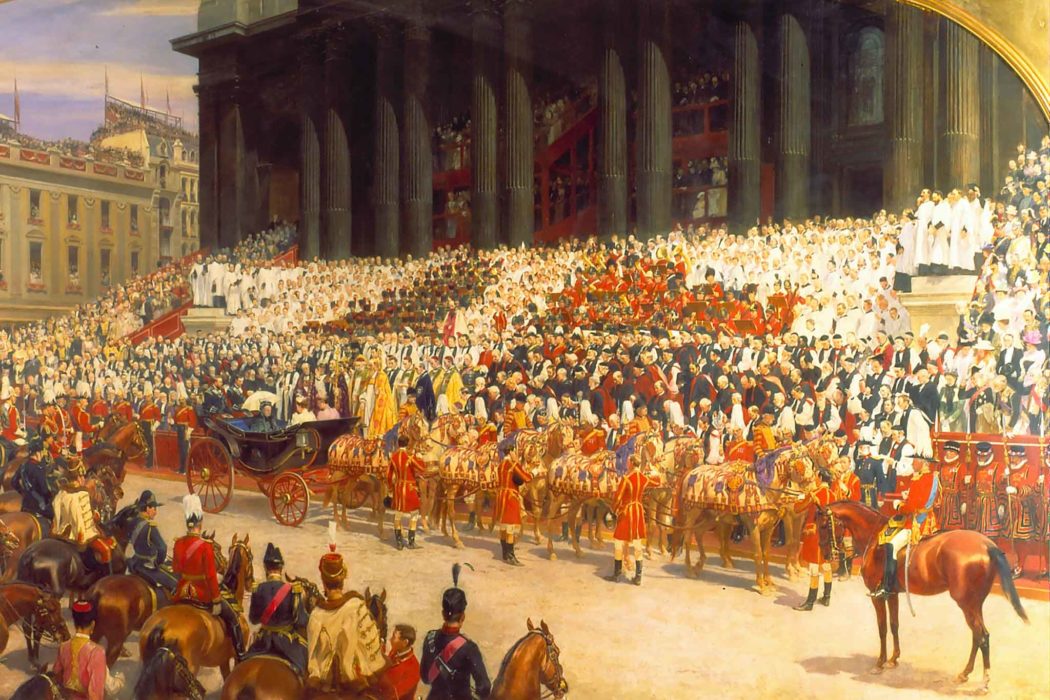“THE CONTINENT OF EUROPE is one vast arsenal,” ‘Abdu’l-Bahá told a New York newspaper. Even though he spoke energetically of peace, he harbored no illusions about the convulsions that were about to overtake Western civilization. The European arsenal, he said, “only requires one spark at its foundations and the whole of Europe will become a wasted wilderness.”
The decades leading up to the Great War have often been interpreted by historians as bursting with confidence — an unbounded faith in the future. In many ways it was true. The preceding century had seen an unprecedented pace of change. The signs of progress were everywhere.
Humanity, many people thought, had become less warlike. The better off countries became, the less violent they would be. Norman Angell, an English journalist, had made this thesis the core of his 1910 book, The Great Illusion. It was only an illusion, he said, that countries actually benefited by war and conquest. But Angell had missed a key point: Europeans had merely transported their aggression to other, less visible parts of the world.
Just ask the Congolese. King Leopold II of Belgium had wanted a colony even before he became king in 1865, in order to bring prestige to his small country. His “Congo Free State,” a private corporation in which he was sole shareholder, operated from 1885 to 1908. Between eight and ten million Congolese were massacred in brutal labor campaigns, forced starvation, and indiscriminate violence, all in the king’s pursuit of his rubber empire.
Leopold used this newfound wealth to raise cultural, artistic, and scientific institutions throughout Belgium. The Palace of Colonies, a natural history museum just outside Brussels, presented a romanticized portrait of life in the Congo. Meanwhile, Leopold’s henchmen in Africa sent him regular counts of the number of hands they had chopped off during their programs of terror, which they designed to keep the rubber profits flowing.

It was the British who finally put an end to it, as part of an international campaign that helped define the idea of “human rights” and created the legal notion of “crimes against humanity.” England’s own empire, of course, stretched over a quarter of the surface of the earth, and ruled a quarter of its people.
It had been on full display on June 22, 1897, at the high point of Queen Victoria’s Diamond Jubilee. Her Colonial Secretary, Joseph Chamberlain, had proposed a festival celebrating the Empire. They held a procession in the streets of London, watched by over three million people. The prime ministers of the self-governing Dominions attended, along with 50,000 infantrymen from India, Hong Kong, Singapore, Borneo, Cyprus, Nigeria, Sierra Leone, the West Indies, and Jamaica.
They asked Rudyard Kipling, who had earned a reputation as the Poet of the Empire, to compose a piece for the occasion. So he did.
Far-called our navies melt away—
On dune and headland sinks the fire—
Lo, all our pomp of yesterday
Is one with Nineveh and Tyre!
It wasn’t what they were expecting. Kipling called it “Recessional,” and tossed cold water on the triumphant mood of the day.
Judge of the Nations, spare us yet,
Lest we forget—lest we forget!
In tomorrow’s feature: Germany challenges Britain, Russia feigns peace, and America flexes its muscles, all in the decades leading up to the Great War.






